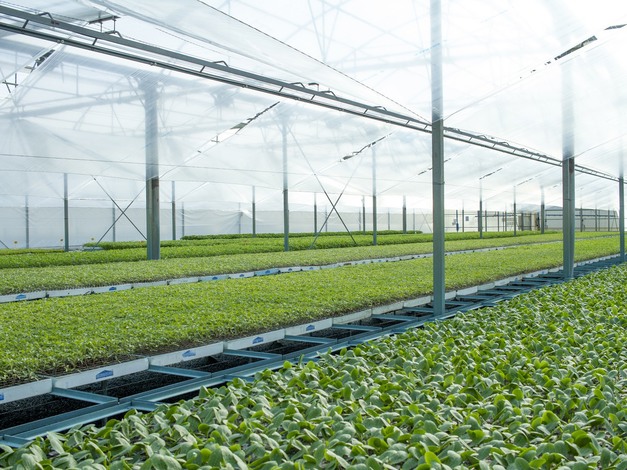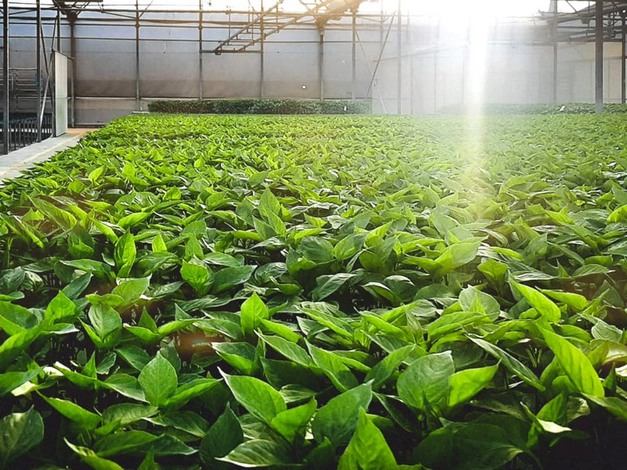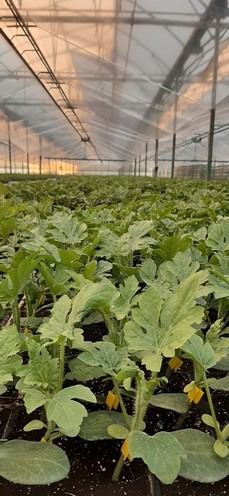The greenhouse vegetable campaign has been quite delayed this year in Almeria, and this has affected the seedbeds in the province that supply the plants, which have experienced some bottlenecks during these first weeks of planting. "The seedbeds usually start delivering bell peppers and tomatoes in summer, but because of the problems with pests at the beginning of the campaign last year, producers are still waiting. Many have feared the Thrips parvispinus in bell peppers, and the rugose virus in tomatoes is even more feared. As a result, the campaign is about 20 days late," said Pepe Blanco of Cristalplant.

"For this very reason, this year, at Semilleros Cristalplant, we have not allowed anyone to come into the greenhouses where our plants are produced to avoid the risk of any form of transmission of viruses and pests from the outside. Last year, we already limited the visits to just one day a week, and this year, we decided that the most sensible thing to do was not to open our doors in order to protect our plants as much as possible from any kind of contagion from the outside. We cannot forget that the transmission of viruses such as the ToBRFV happens by contact, and we have heard that companies that have tested their facilities have found the virus even on the footrests of the administrative desks in the offices."
"As for the trends we are seeing this year in the orders from our customers, bell peppers are down; in fact, with 33 million bell pepper plants, we have done 1.5 million fewer plants for the 2023/24 season."

"As for tomatoes, in our case, we are going to increase the production for this season, especially that of grafted tomatoes, for which we are handling much higher figures than last year. The seedhouses have done a great job at developing and promoting many resistant varieties, and it seems that this has encouraged growers to plant tomatoes this year."
However, with industrial tomatoes, the situation is completely different, according to Pepe Blanco. "For example, we usually produce a lot of plants for Seville, but due to the drought, the volume of orders has been significantly reduced. There is a customer who used to take 80 million plants, and this year, we are only delivering 10 million."

"Still, with eggplant, we have seen a very significant increase in the amount of orders. This crop is certainly more resistant to pests and requires less labor, and this year, everything points to a large amount of it being delivered."
"With regard to zucchini, we are in the middle of the planting season, and our sales figures are also higher than last year's. We are also seeing that growers have invested more money in a larger amount of plants of more expensive varieties that have proven to be resistant to viruses. Last year, many people had to pull up entire plantations, and this year, they have aimed to secure more resistant plants."
"Lastly, when it comes to cucumbers, it is still premature to make an assessment because the planting will be done later, but orders are already ahead of last year's. In total, we expect to reach 10 million breeding plants and 1.5 million grafts."
Taking into account both melon and watermelon plants and the production of open-ground vegetable seedlings, in 2023, Cristalplant will have produced some 202 million plants. We cannot forget that this is the first step in the process that makes it possible for Spain to be the EU's main fruit and vegetable producer, with more than 26% of the European production and the seventh worldwide.
"Our turnover figures are going to grow in 2023, and they will grow even more after the launch of the new seedbed we have acquired in Cabo de Gata," said Pepe.
 For more information:
For more information:
Grupo Cristalplant
Tel.: +34 950 565 032
Paraje La Cumbre s/n
04717 San Agustín, El Ejido. Almeria. Spain
https://cristalplant.com/
